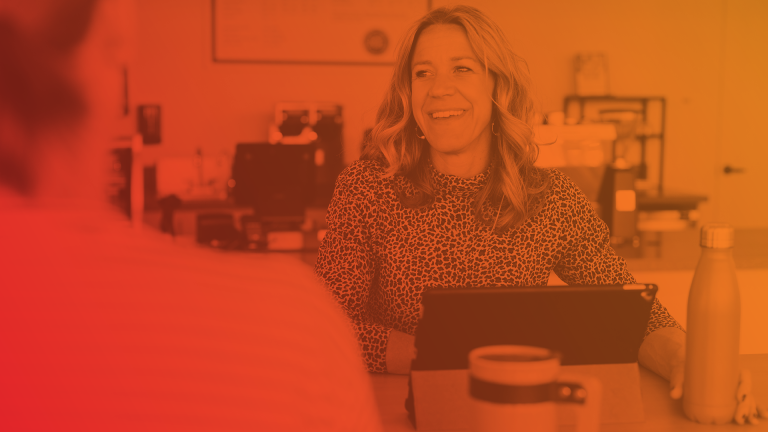
In October 2020, during the COVID-19 pandemic, Instructure hosted its first ever virtual CanvasCon. In the backdrop of the monumental change brought about by lockdowns, school closures, and hundreds of web-conference meetings, Samantha Blyth, Senior Sales Director, organised a showcase of leading and innovative Canvas institutions, discussing how they have adapted to the new normal. This blog series showcases stories of institutions supporting students from rural areas and from low-income families, including the University of Cape Town (UCT), Swansea University, and Viden Djurs, a specialist digital education institution in Denmark.
Equitable Access is the notion that every student in a classroom or online course should have the same opportunities as any other student - whether that is facilities, an excellent tutor, or resources like books. More common, in recent years, Equitable Access is the notion that we must make a greater effort to support students who may not have internet access, a place to study at home, or a digital device. With campuses closing due to COVID-19, a previous safe haven for institutions to provide additional support to those who need it has been removed.
University of Cape Town:
- Based in Cape Town, South Africa Public research university founded in 1829
- Began Piloting Canvas LMS in 2018
- Represented by Sukaina Walji, Project Consultant at the Centre for Innovation in Learning and Teaching
Being in the southern hemisphere, UCT’s Academic Year starts in February. That meant that when COVID-19 struck, and campuses entered lockdown in March, the Academic Year had just started. Students had barely arrived on campus, and staff had only met their students a few times. When the campus was shut down, students went home, being dispersed across the country.
The requirement to pivot to online instruction was clear. But UCT were aware that their students faced very particular issues. The problem was that they did not know each student’s individual situation.
Seeking understanding:
To guide UCT’s transition to online learning, they published a Student Access Survey for all students to highlight their individual situation and learning challenges. To ensure they reached students with limited internet connectivity, UCT formed a call centre to phone students that had not completed the Student Access Survey.
The aim of the survey was to identify students that required laptops or mobile devices. The initiative was to ensure students have equal first-level access to UCT’s online learning.
Ensuring first-level equitable access for all:
However, it was evident that first-level access alone wasn’t enough. On-campus, providing students with stable WiFi is easy, since they are in halls of residence. What was required, was a government-level initiative to ensure students had equitable access to internet data.
Two complementary strategies were developed. At the government-level, South Africa worked with telecom operators to give students zero ratings for educational sites, meaning students could access UCT’s online learning for free from their mobile phone. As is common in rural areas, cellphone signal is stronger than broadband speeds.
Secondly, UCT offered data bundles to students that had been identified in the Student Access Survey. On a month-by-month basis, students were given 30GB data for accessing learning. Along with the provision of devices, students could now connect to the internet on a suitable device, ensuring the first-line attempt to equalise opportunities to study was achieved.
Second-level Equal Access:
Next, UCT turned their focus to ensuring students have a conducive environment to study. With students returning home, some did not have access to a private room to study in. Some did not even have access to a table. As part of the Student Access Survey, UCT were able to gain deep insight into individual students - for example, how many hours they could practically study within each day.
With this wealth of information, UCT were able to develop an Academic Framework for staff developing online courses, with the aim of equalising outcomes. Practical developments included reducing course loads, adjusting term lengths based on hours of study, and simplifying assessments to Pass/Fail, since not all students had the same opportunity.
“Democratization of education begins with equitable access. Equitable access is the enabler. Internet connectivity is one of the basic needs of the modern pursuit of education.” - Instructure's State of Student Success Report
Equitable Access through a-synchronous and flexible learning, with low bandwidth requirements:
The Academic Framework also offered guidelines for teachers around course design. Prior to COVID-19, UCT was not an online university, and digital learning was not deeply embedded in the University. The Academic Framework has a strong advocacy for low-technology remote teaching, favouring a-synchronous and flexible learning.
Through the Student Access Survey, UCT were able to circumvent the fact that students had only been enrolled for one month before lockdown. Through the initiative, UCT has more information about their students’ situations than ever before. This enabled UCT to use appropriate tools for each. Videos are provided along with transcription services, avoiding high-bandwidth video conferencing, which many students would not be able to take part in.
The asynchronous nature of their courses means that students are more able to contribute to UCT’s learning community at times they are able to.
Samantha Blyth, who hosted the conversation, summed up UCT’s situation well:
“It is so interesting to hear that all conversations were about the student, not the technology. And you know your students much better now! The extremity of your challenges are clear, but you still managed to navigate a successful route through them.”
As we look ahead to the post-COVID19 world, there is a precedent to ensure that these initiatives that ensure equitable access are continued. If you have any other stories about policies or initiatives that have supported equitable access, share them with us using #Canvas. You can also read more about Instructure’s State of Student Success, which covers many elements of Equitable Access, here:
www.instructure.com/canvas/en-gb/resources/home/infographic-the-state-of-student-success-in-emea
Related Content
 canvas-biz-investment.jpg
canvas-biz-investment.jpgBlogs
 Upskilling and Reskilling Preparing Students for a Modernized Workforce.png
Upskilling and Reskilling Preparing Students for a Modernized Workforce.pngBlogs
 skills-forward.jpg
skills-forward.jpgBlogs